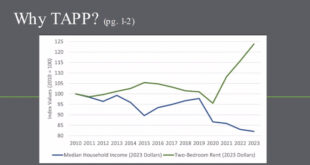Trying to even the playing field
When state representative Kathleen Curry left the Democratic Party but still wanted to run to retain her House District 61 seat, she knew she’d have an uphill battle. She was kept off the ballot even after filing a lawsuit to get her name added to it, so she will be a write-in candidate. Last week, Curry filed another lawsuit to try to even the playing field with her party-affiliated opponents in terms of campaign contributions.
Under current Colorado law, major party candidates can accept $200 contributions from individuals both before and after a primary election date. Unaffiliated candidates like Curry are limited to $200 total.
“The conventional wisdom behind this is that if you have a contested primary then you are basically running two races and should be able to accept additional funding. However, my opponents do not have contested primaries,” Curry said. “I have to essentially get twice as many people to donate to my campaign in order to get the same amount of money.”
“There is an obvious disparity with how unaffiliated candidates are being treated,” she continued. “It’s in the state constitution and it’s surprising it’s never come up before.”
Curry’s lawyer filed a lawsuit in federal district court in Denver seeking to overturn the language in the state constitution that limits monetary contributions to unaffiliated and minor party candidates.
“My attorney, Bill Zimsky, took a look at this situation and let me know that he thinks the limitation on donations to my campaign violates the first and fourteenth amendments to the U.S. Constitution. I agree,” Curry stated.
In a press release, Curry said she knows “it seems late in the game to take this issue on, but I think it is a worthwhile effort regardless. We need to eliminate the discriminatory practices set forth in the current law whether or not the results impact the current election cycle. The goal is to even the playing field for all candidates running for office.”
Curry lost her lawsuit earlier this year that asked a judge to allow her name on the ballot. Under current law, unaffiliated candidates must be unaffiliated 17 months before an election in order to be on the ballot. The Democrats and Republicans, however, have a much more lax deadline.
Governor Bill Ritter and secretary of state Bernie Buescher were named as defendants in the campaign contribution suit. There is no word on the timing of a response to the lawsuit. Curry is running in the November election.
“I wouldn’t expect this to be ruled on this election cycle,” Curry admitted. “It’s the principle of it that we need to have a conversation about.”
 The Crested Butte News Serving the Gunnison Valley since 1999
The Crested Butte News Serving the Gunnison Valley since 1999



